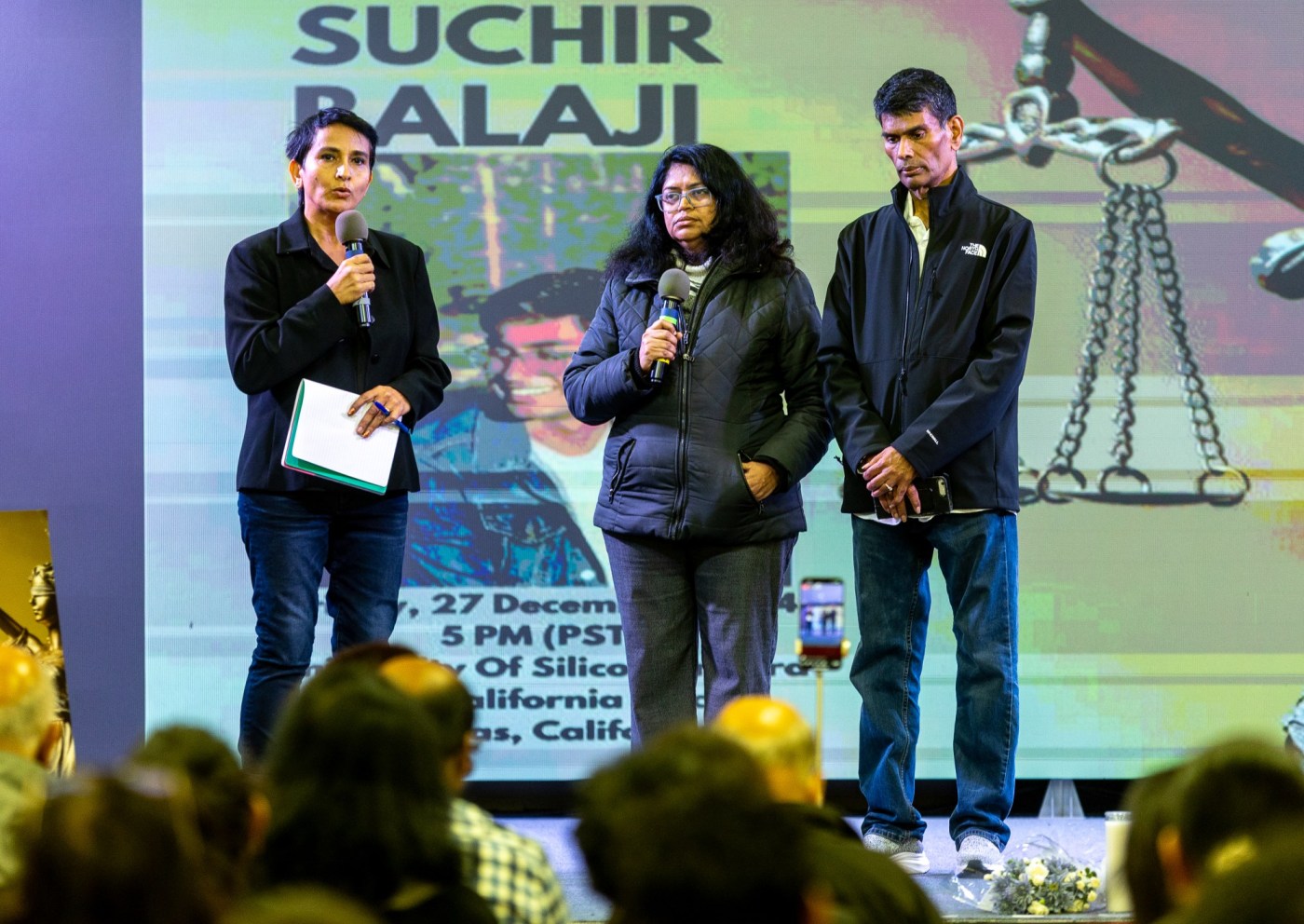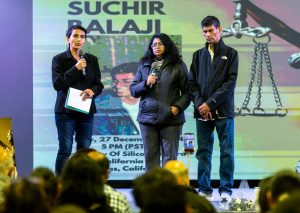
Congressman Ro Khanna calls for ‘full and transparent’ investigation into death of OpenAI whistleblower Suchir Balaji
SANTA CLARA — Silicon Valley Congressman Ro Khanna on Wednesday called for a “full and transparent” investigation into the death of Suchir Balaji, the OpenAI whistleblower who gained national attention last year after publicly claiming the company violated federal copyright laws.
Khanna’s request — made in an apparent exchange on the social media site X with Balaji’s mother — came weeks after the whistleblower’s family began publicly questioning a preliminary determination by the San Francisco County Medical Examiner’s Office that the 26-year-old man died of suicide nearly two months ago inside his San Francisco apartment. His parents have since commissioned a separate autopsy of their son’s body, though they have yet to provide a copy of its findings.
In his post Wednesday morning, Khanna appeared to address Balaji’s mother directly, saying “I am heartbroken by your loss,” while adding that “given your very serious concerns about foul play, I do believe that there should be a full and transparent investigation into the death by the FBI or appropriate agency.”
Khanna later confirmed he authored the social media post. His comment appeared to be in response to a tweet earlier in the morning by Balaji’s mother, Poornima Ramarao, who thanked the congressman “for speaking about our son… and assuring to support us and calling for FBI investigation.”
Congressman Ro Khanna.(Bill Clark/CQ-Roll Call, Inc./Getty Images)
Balaji’s death in late November has become a subject of international fascination.
Even Elon Musk — an early funder of OpenAI who later split with the company and feuded with its CEO, Sam Altman — has weighed in on Balaji’s death by doubting the notion that Balaji took his own life. Musk’s comments came during an exchange on the billionaire’s social media platform, X, in which he replied to a post by Balaji’s mother that called for the FBI to investigate.
Balaji garnered national attention in October when he told the New York Times that his former employer of four years, OpenAI, repeatedly flouted federal copyright laws by siphoning data from across the internet to train its blockbuster chatbot, ChatGPT. He posted a detailed analysis of his concerns on a personal website and claimed the company’s data collection practices are “not a sustainable model for the internet ecosystem as a whole.”
“If you believe what I believe, you have to just leave the company,” he told the newspaper.
Balaji’s allegations came on the heels of lawsuits filed by artists and several newspapers — including The Mercury News and The New York Times — accusing OpenAI and a business partner, Microsoft, of stealing their content in violation of U.S. “fair use” laws, which govern how people can use previously published work.
On Nov. 18, the New York Times named Balaji as someone who had “unique and relevant documents” that would support the outlet’s court case against OpenAI. He was among at least 12 people — many of them past or present OpenAI employees — to be named by the newspaper in court filings as having material helpful to their case.
Balaji last spoke to his family on Nov. 22, a day after his 26th birthday. He was found dead in his Lower Haight apartment four days later, after his mother, Poornima Ramarao, insisted that San Francisco police check on him.
In mid-December, the medical examiner’s office determined the manner of death to be suicide, though a final autopsy report had not been finalized. At the time, police officials told this newspaper that there is “currently, no evidence of foul play.”
Parents of Suchir Balaji, Poornima Ramarao, left, and Balaji Ramamurthy, right, hold a photograph of their son from 2022, in their home in Alameda County, Calif., on Monday, Dec. 23, 2024. Suchir Balaji, 26, is a former OpenAI researcher known for whistleblowing the blockbuster artificial intelligence company who was found dead in his apartment this past Nov.. (Nhat V. Meyer/Bay Area News Group)
In an interview, Balaji’s parents expressed confusion and shock that Balaji might take his own life. The tech entrepreneur had already been courting funders for a nonprofit he planned to create focused on the machine learning and neurosciences fields. In the days before he died, Balaji appeared in good spirits after returning from a backpacking trip with several friends from high school.
“He was very happy,” Ramarao said. “He had a blast. He had one of the best times of his life.”
Ramarao called on San Francisco police to re-open their investigation into Balaji’s death, suggesting that “as grieving parents, we have the right to know what happened to our son.” The family has since started a GoFundMe account to help pay for a private investigator, which had raised more than $81,600 through Wednesday afternoon.
At a vigil organized by the family in late December, about 100 people gathered to remember Balaji and his fight over OpenAI’s alleged infringement of U.S. copyright laws — a gathering that doubled as a rally calling for a renewed investigation into Balaji’s death. At one point, the mourners chanted: “we want justice – justice for Suchir.”
“He was a witness in a very critical case, and even that is not yet taken into account,” Ramarao said at the vigil. “That’s most frustrating for us. What’s the value of speaking the truth? What can go wrong that turns his life upside down?”
The former OpenAI employee’s concerns struck a chord with several attendees, who said they were deeply invested in the clash over artificial intelligence and copyright laws. Recently, some have raised concerns that OpenAI’s ChatGPT doesn’t appear to recognize who Balaji is — claiming as of its “knowledge cutoff in 2023, Suchir Balaji doesn’t appear to be a widely known figure in the public domain.”
“It’s possible that he could be an emerging individual in a specific field, but I don’t have information about him based on my available data,” ChatGPT said in response to a question from this newspaper.
For people who gathered to mourn Balaji’s death last month, the cause that he had raised in his final months still resonated deeply.
“You cannot replace human creators with computers, and he was pointing that out with his work. And I think he was fighting a battle,” Ganesh Balamitran said. “I really want this fight to go on, because it is completely important for humans, for their creative spirit to survive and not be taken over by AI.”
If you or someone you know is struggling with feelings of depression or suicidal thoughts, the 988 Suicide & Crisis Lifeline offers free, round-the-clock support, information and resources for help. Call or text the lifeline at 988, or see the 988lifeline.org website, where chat is available.
Jakob Rodgers is a senior breaking news reporter. Call, text or send him an encrypted message via Signal at 510-390-2351, or email him at jrodgers@bayareanewsgroup.com.


